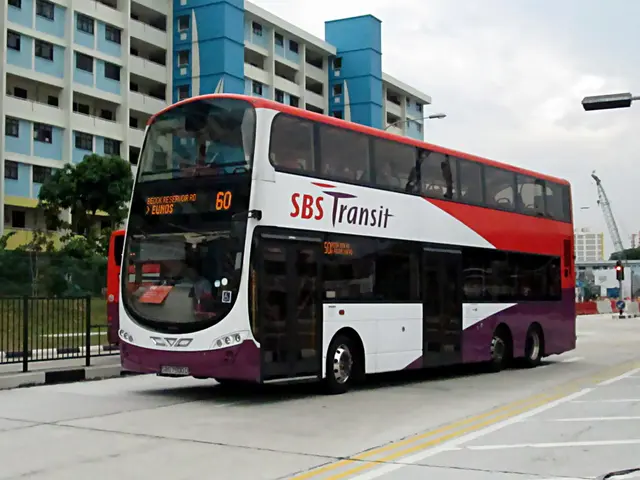Title: Addressing the HGV Driver Shortage in the UK: Temporary Measures and Industry Collaboration
The UK government is mulling over temporary measures to tackle the HGV driver shortage, as queues appeared at petrol stations this past weekend. This move, which logistics companies and retailers have been advocating for, was previously dismissed by the government.
The need for another 100,000 HGV drivers to meet demand is partly attributed to Brexit, Covid-19, and a loss of approximately a year's worth of truck driver training and testing.
Recently, the government and industry stakeholders have been considering several short-term measures to address the driver shortage and its repercussions on petrol station queues and supply chain issues:
- Increased wages and bonuses: Companies are offering higher remuneration packages to entice and retain drivers, which may lead to increased consumer costs to mitigate the crisis.
- Flexible, funded training options: The Road Haulage Association (RHA) advocates for flexible, subsidized training options to attract more young individuals into the industry and improve driver retention. This includes launching cost-effective training programs, like boot camps, and collaborating with industry trainers.
- Government support and industry collaboration: The RHA encourages government involvement and industry partnerships to develop industry-specific training initiatives, such as T-Levels. Funds from the Growth and Skills Levy can be utilized for training options tailored to enterprise demands.
- Promoting careers in logistics: The RHA suggests closer collaboration between the industry, schools, and colleges to promote careers in logistics and encourage more people to join the profession.
- Policy changes: Addressing the HGV driver shortage necessitates a comprehensive approach, incorporating policy changes to confront the aging workforce, low diversity, and driver retention challenges.
These proposed measures aim to bolster the workforce, improve training options, and strengthen bonds among the industry, government, and educational establishments to tackle the persistent HGV driver shortage and its implications on supply chains and consumer access to goods.
Additional Insights
Other nations, like the United States and Germany, are grappling with their own HGV driver shortages. Meanwhile, the European gas prices have surged, driving up energy costs and potentially leading to a food supply crisis. In response, the British government emphasizes the necessity of training more domestic drivers to develop a long-term solution. Stakeholders urge higher salaries, improved working conditions, and better promotion of careers in logistics to encourage more people to join the industry.








